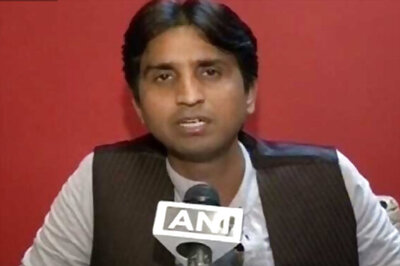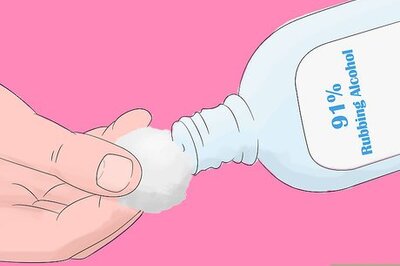
views
New Delhi: India accounted for 37 per cent of global suicide deaths among women and 24 per cent among men in 2016, according to a study published Wednesday.
The Global Burden of Disease Study 1990-2016 published in the Lancet Public Health journal said 63 per cent of all suicide deaths reported in India were in the 15-39 age group. Suicide ranked first in India as the cause of death compared to its third rank globally in this age group, it said.
There was an increase of 40 per cent in the number of suicide deaths between 1990 and 2016, with an estimated 2,30,314 deaths in 2016 indicating that "disproportionately high suicide deaths in India are a public health crisis", according to the lead author of the study, Professor Rakhi Dandona from Public Health Foundation of India.
"Having said that, the suicide death rate (SDR) has reduced by 15 per cent from 1990 to 2016," she said. The study found wide variations in suicide death rate across states in India.
Karnataka, Tamil Nadu, Andhra Pradesh, Telangana, West Bengal and Tripura had high suicide death rates for both men and women, in addition to Kerala and Chhattisgarh which had high suicide death rates for men.
The suicide death rate for women in India is 15 per one lakh women, double that of the global suicide rate for women in 2016, which is seven per one lakh women. Married women account for the high proportion of suicide deaths in India, the study stated.
Marriage is known to be less protective against suicide for women because of arranged and early marriage, young motherhood, low social status, domestic violence, and economic dependence.
"The trends in SDR in women in this study suggest the need to further assess the complex relationships between gender and suicidal behaviour to facilitate women-specific suicide prevention strategies," Dandona said.
At the same time, she stressed the high SDR among men in India has not changed over time and needs immediate attention. For suicide among men in India, it appears young adults are a vulnerable group, and marriage does not seem to be protective for them either.
Personal and social reasons, financial problems, poor health are known as major reasons of suicide in India and the most-used means of suicide are poisoning, drug overdose and hanging, as known from previous research, Dandona said.
The study found that the suicide death rate is increasing in the elderly, especially among those above the age of 80 years, which will pose additional challenges.
For the elderly, social isolation, depression, functional disability, and the feeling of being a burden on their family have been cited as reasons for suicides globally, however, not much is known about reasons for suicides in the elderly in India, Dandona said.
With their increasing proportion in the population, the reasons for suicide and mental health issues in the elderly need to be explored urgently within the National Programme for Health Care of the Elderly in India to address the increasing suicide deaths in this age group, Dandona stated.
There is an urgent need for a national suicide prevention strategy, that is data-driven, gender-specific and takes the state variations into account.


















Comments
0 comment